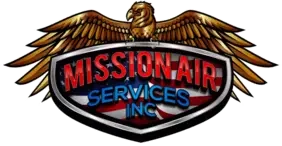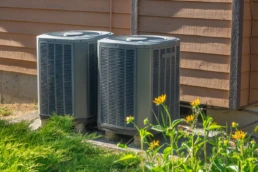Maximizing Heating Efficiency: Prepping Your HVAC for the Chilly Mornings in Plant City, FL
While Plant City, FL is known for its warm weather and abundant sunshine, even this sunny locale experiences chilly mornings, especially during the cooler months. As the temperature drops overnight, those early hours can be brisk, requiring you to rely on your HVAC system to keep your home warm and comfortable. However, if your system isn’t properly maintained or optimized, you could find yourself paying higher energy bills or dealing with uneven heating.
Maximizing the efficiency of your HVAC system is essential to maintaining comfort without breaking the bank. But how do you ensure your heating system is operating at peak performance? This blog will walk you through everything you need to know about preparing your HVAC for those chilly mornings, with practical tips and professional advice to keep your system running smoothly.
Why Heating Efficiency Matters in Plant City
While Plant City doesn’t endure the harsh winters of northern climates, even the moderate drop in temperature can make your home uncomfortable without a well-functioning HVAC system. Efficient heating is not just about comfort—it’s about cost savings and energy conservation. An inefficient HVAC system uses more energy to produce the same amount of heat, leading to higher utility bills and unnecessary wear and tear on your equipment.
According to the U.S. Energy Information Administration, heating and cooling account for about 50% of the energy used in a typical home. This makes efficiency improvements a key factor in reducing overall energy consumption and costs.
By focusing on HVAC maintenance and optimizing your heating system, you can avoid wasting energy and ensure your home is warm when those cooler mornings hit.
How Does Your HVAC System Work During Cool Weather?
Before diving into how to improve your heating efficiency, it’s important to understand how your HVAC system works during cool weather. In Florida’s climate, most HVAC systems are equipped with heat pumps or furnaces, both designed to provide heat when the temperature dips.
- Heat pumps transfer heat from the outside air to your home, even in cooler temperatures. These systems are generally more energy-efficient than traditional furnaces.
- Furnaces burn natural gas or use electricity to generate heat. While they can heat your home quickly, they require more energy to operate than heat pumps.
Understanding your system’s heating method can help you make informed decisions on maintenance and upgrades to enhance efficiency.
Signs Your Heating System Needs Attention
Just because your HVAC system is running doesn’t mean it’s working efficiently. Here are a few signs that indicate your heating system may need maintenance or repair:
- Uneven heating: If certain rooms are warmer than others, your system may be struggling to distribute heat evenly.
- Strange noises: Banging, whistling, or rattling sounds can indicate mechanical issues within your system.
- Increased energy bills: A sudden spike in energy usage could point to inefficiency, indicating that your HVAC system is working harder than it should.
- Frequent cycling: If your system is turning on and off frequently, it may be an indication of a problem with the thermostat or the HVAC unit itself.
Key Tips for Maximizing Heating Efficiency
Now that you know why heating efficiency is important, let’s dive into the practical steps you can take to prep your HVAC system for those cooler mornings in Plant City.
1. Schedule Regular HVAC Maintenance
The number one way to ensure your heating system is ready for cooler weather is by scheduling regular maintenance. Annual or bi-annual tune-ups by a professional HVAC technician can help identify potential issues before they become costly problems. During a maintenance visit, the technician will:
- Inspect and clean key components of your system, such as filters, coils, and heat exchangers.
- Check for leaks or cracks that could impact efficiency.
- Ensure that your system’s thermostat is functioning properly.
- Lubricate moving parts to prevent unnecessary friction.
According to Energy Star, nearly half of HVAC failures can be prevented with regular maintenance. This not only keeps your system running efficiently but can extend the lifespan of your equipment.
2. Replace or Clean Air Filters
Dirty air filters can obstruct airflow, forcing your HVAC system to work harder to distribute heat throughout your home. This not only reduces efficiency but can also lead to higher energy bills. Replacing or cleaning air filters every one to three months is a simple yet effective way to boost your system’s efficiency.
A study by the Environmental Protection Agency (EPA) found that clean filters can improve HVAC efficiency by up to 15%. If you have pets or live in an area with high dust levels, consider replacing your filters more frequently.
3. Seal Air Ducts
Leaky ducts are a common cause of inefficiency in heating systems. When ducts are not properly sealed, warm air can escape before it reaches its destination, causing your system to work harder to maintain the desired temperature. According to the U.S. Department of Energy, leaky ducts can reduce your system’s efficiency by up to 30%.
Have a professional HVAC technician inspect your ductwork to identify any leaks, and seal them with mastic sealant or metal tape. This simple fix can significantly improve the overall performance of your system.
4. Install a Programmable Thermostat
A programmable thermostat allows you to set your HVAC system to lower temperatures when you’re not at home or sleeping, saving energy without sacrificing comfort. By programming your thermostat to adjust according to your schedule, you can reduce unnecessary heating and ensure your system operates efficiently.
According to the U.S. Department of Energy, you can save up to 10% annually on heating and cooling costs by turning your thermostat down 7-10 degrees for eight hours a day.
5. Check and Improve Insulation
Good insulation helps retain heat, reducing the amount of work your HVAC system has to do to keep your home warm. Check your attic, walls, and floors for adequate insulation. If your insulation is outdated or insufficient, consider upgrading to improve energy efficiency.
Proper insulation can reduce heating and cooling costs by an estimated 15%, according to Energy Star. In a climate like Plant City’s, this can make a noticeable difference in both comfort and savings.
6. Keep Vents and Registers Clean and Unobstructed
Blocked or dirty vents and registers can restrict airflow, causing your system to overwork. Regularly vacuuming and dusting these areas can prevent debris buildup. Additionally, make sure that furniture, rugs, or curtains are not blocking vents, which can also hinder your system’s performance.
7. Consider Upgrading to an Energy-Efficient HVAC System
If your current HVAC system is more than 10-15 years old, it may be time to consider upgrading to a more energy-efficient model. Newer HVAC systems come with higher SEER (Seasonal Energy Efficiency Ratio) ratings, which means they use less energy to produce the same amount of heat or cooling.
Energy-efficient systems can save homeowners up to 20-40% on heating and cooling costs, according to the Department of Energy. While upgrading may seem like a significant upfront cost, the long-term savings can make it a worthwhile investment.
Understanding the Importance of Professional HVAC Services
While many of the tips outlined above can be performed by homeowners, others require the expertise of a professional. Ensuring that your system is properly maintained, inspected, and optimized for efficiency is crucial to avoiding costly breakdowns and ensuring your home remains comfortable on those chilly Plant City mornings.
A professional HVAC technician from Mission Air Services can:
- Diagnose potential issues that may be reducing your system’s efficiency.
- Perform necessary repairs or upgrades to keep your system running smoothly.
- Provide expert advice on the best heating practices for your home’s specific needs.
By working with a trusted HVAC professional, you can have peace of mind knowing that your system is operating at its best, keeping your home warm and your energy bills low.
For Heating Services in Plant City, FL, Contact Mission Air Services Today
Maximizing heating efficiency not only saves you money but ensures that your home stays comfortable when the temperatures drop. By following these tips, scheduling regular maintenance, and working with a professional HVAC service, you can enjoy a warm and cozy home without the worry of high energy costs or unexpected breakdowns.
At Mission Air Services, we specialize in helping Plant City homeowners keep their HVAC systems running efficiently year-round. Whether you need a routine tune-up, emergency repair, or advice on upgrading your system, our team of experienced professionals is here to help.
Contact Mission Air Services today to schedule your HVAC maintenance or to learn more about how we can improve the heating efficiency in your home. Let us help you stay comfortable during those chilly mornings while keeping your energy bills in check!
Exploring the Different Types of Residential HVAC Equipment
When it comes to keeping our homes comfortable, HVAC (Heating, Ventilation, and Air Conditioning) systems play a crucial role. However, not all HVAC systems are created equal. There are various types of residential HVAC equipment available, each with its own unique features and benefits. In this blog post, we will explore the different types of residential HVAC equipment, helping you understand their functions and choose the right system for your home.
Central Air Conditioning Systems:
Central air conditioning systems are the most common type of HVAC equipment found in residential properties. These systems consist of an outdoor unit that houses the compressor and condenser, and an indoor unit that contains the evaporator coil and blower. Central AC systems use ductwork to distribute cooled air throughout the home, providing consistent temperature control in every room.
Heat Pumps:
Heat pumps are versatile HVAC systems that can provide both heating and cooling. They work by transferring heat between the indoors and outdoors, depending on the desired temperature. In warm weather, heat pumps extract heat from the indoor air and release it outside, cooling the home. In colder months, the process is reversed, and heat pumps extract heat from the outdoor air (even in low temperatures) and transfer it inside to warm the home.
Ductless Mini-Split Systems:
Ductless mini-split systems are an excellent option for homes without existing ductwork or for specific zones that require individual temperature control. These systems consist of an outdoor unit connected to one or more indoor units mounted on the walls or ceilings of different rooms. Each indoor unit can be controlled independently, allowing for personalized comfort settings. Ductless mini-split systems are energy-efficient and provide both heating and cooling capabilities.
Furnaces:
Furnaces are the most common type of heating system found in residential properties. They use either gas or electric power to generate heat, which is then distributed throughout the home via ductwork. Furnaces can be paired with central air conditioning systems to provide year-round comfort. Gas furnaces are popular for their efficiency and cost-effectiveness, while electric furnaces are a suitable option for areas without access to natural gas.
Hybrid HVAC Systems:
Hybrid HVAC systems combine the efficiency of a heat pump with the reliability of a gas furnace. These systems automatically switch between the two heat sources based on outdoor temperatures and energy costs, optimizing efficiency and comfort. In milder weather, the heat pump operates, while the gas furnace kicks in during colder temperatures. Hybrid systems are an excellent choice for homeowners looking to maximize energy savings.
Contact Mission Air Services for a New HVAC Install in Plant City, FL
Choosing the right HVAC equipment for your home is essential for maintaining a comfortable indoor environment throughout the year. Whether you opt for a central air conditioning system, heat pump, ductless mini-split system, furnace, or hybrid HVAC system, each type has its own advantages and considerations. Consulting with a qualified HVAC professional can help you assess your home's specific needs and make an informed decision. Invest in the right residential HVAC equipment to enjoy optimal comfort and energy efficiency in your home.


